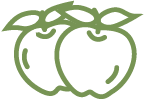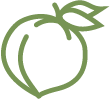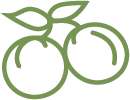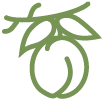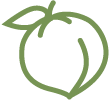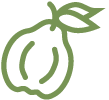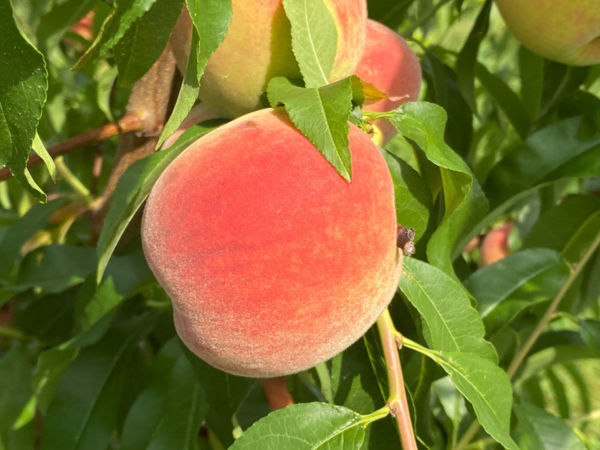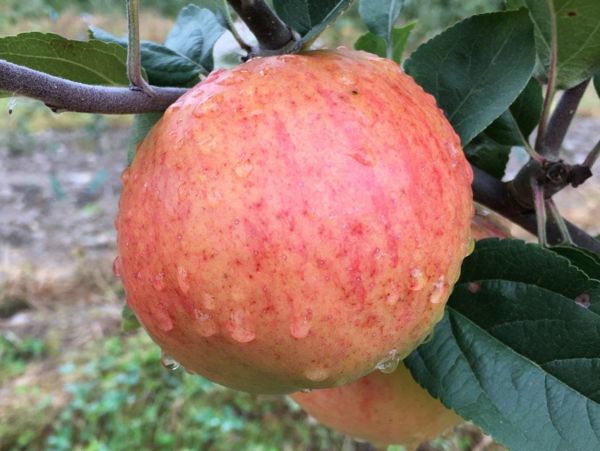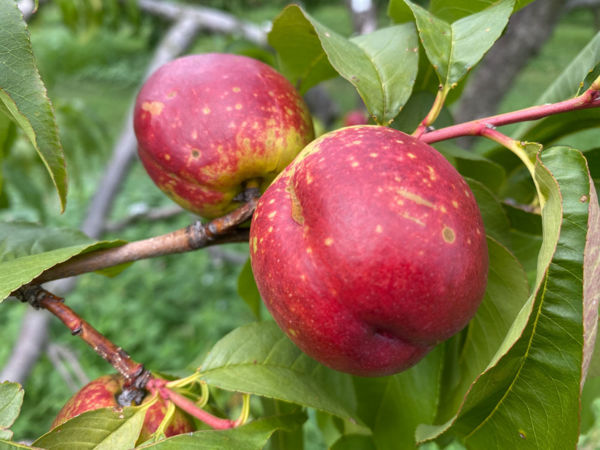An attractive, highly disease-resistant apple, ideal for organic growers.
Harlayne Apricot on Myrobalan (Spring 2025)
You are viewing a tree that will ship in Spring 2025. You can also find trees for Spring 2024.
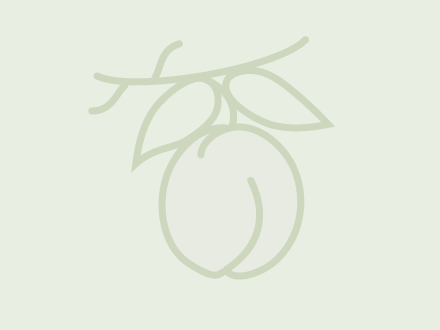
A very hardy, late-season disease-resistant apricot.
Harlayne is an excellent choice for a low-maintenance, cold-hardy apricot. It is productive, cold hardy to -34 (the most winter-hardy of the Harrow Series), late blooming, and late harvest (about 17 days after Harcot). It is resistant to brown rot, perennial canker, and bacterial spot. This tree is not self-fertile and a second late-blooming variety is required as a pollenizer: Harogem, Hargrand, and Jerseycot are all suitable partners.
The fruit is freestone, medium sized, very firm, with an attractive red blush. It is a high-quality apricot, and it does not tend to cracking. Thinning is recommended for optimal fruit size.
As Bob Purvis explains in Pomona, Fall 2006: "The earliest apricots brought to North America were mostly from Spain and similar Mediterranean climates, and they did not include the genes for a broader range of climatic adaptability. Modern breeders have sought out germplasm in many places, including central Asia where the apricot is thought to have originated." One such breeding program is based in Harrow, Ontario, and it has produced the "Harrow Series" of cold-hardy apricots that are suitable for New York and New England. Harlayne was released by this program in 1980, and it is, I assume, named for its developer, Dr. Layne.
The Fruit
Fruit Type
Category: Apricot
Subcategory:
Fruit Uses & Storage
Uses: fresh eating, jam, baking, canning, freezing
Storage duration: less than one month (approximate, depending on storage conditions)
Fruit Appearance
Skin color: orange
Flesh color: orange
Fruit Origins
Parentage: Prunus armeniaca cv. [(Reliable x o.p.) x o.p.] x Sun Glo
Origin: AAFC-Harrow, Ontario
Introduced in: 1980
Introduced by: Dr. Richard Layne
The Environment
Calendar & Geography
USDA zones: 4 - 8
Chill hours: 800
Ripening date: Aug 06 (approximate, in New York State) + 17 days after Harcot
Tree Height & Spacing
glossary
Rootstock: Myrobalan Rootstock
Rootstock size class: Standard (100% Size)
Tree spacing: See details
Good for wildlife planting? N
Diseases & Pests
glossary
Brown Rot, Blossom Blight, Fruit Rot: Resistant
Perennial Canker: Resistant
Bacterial Spot: Resistant
Pollination
Pollination Factors
glossary
Bloom group:
Is it self-fertile? N
Is it fertile? Y
Ploidy: Diploid
Rootstock size class:
Standard (100% Size)
Pollination Partners
Apricots are not part of our search tool given various complexities. Please see our Pollenizer Search to run other queries and read how the application uses various factors. Also read more about fruit tree pollination.
Featured Products
A few things we're loving right now...
A full-flavored, freestone white peach.
A traditional semisharp cider apple from Spain.
A widely-grown, large, yellow-fleshed nectarine.

